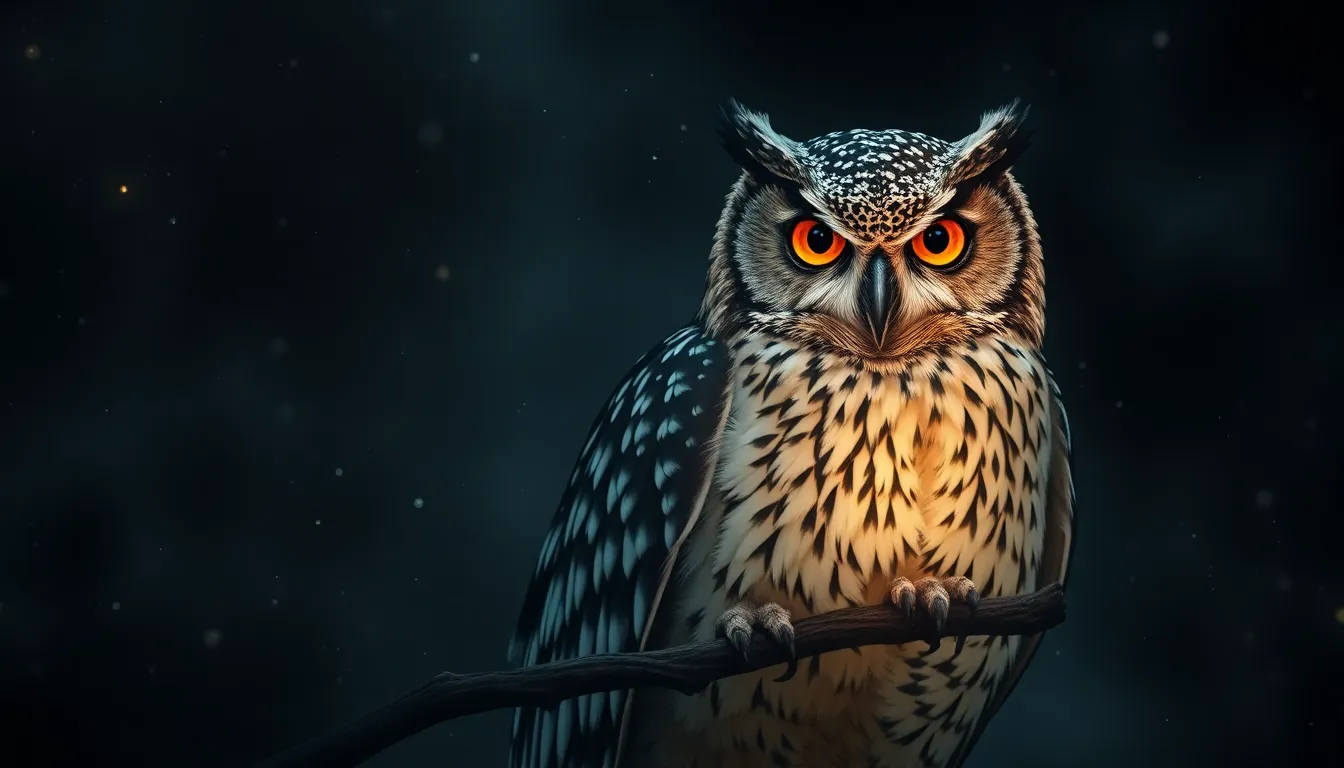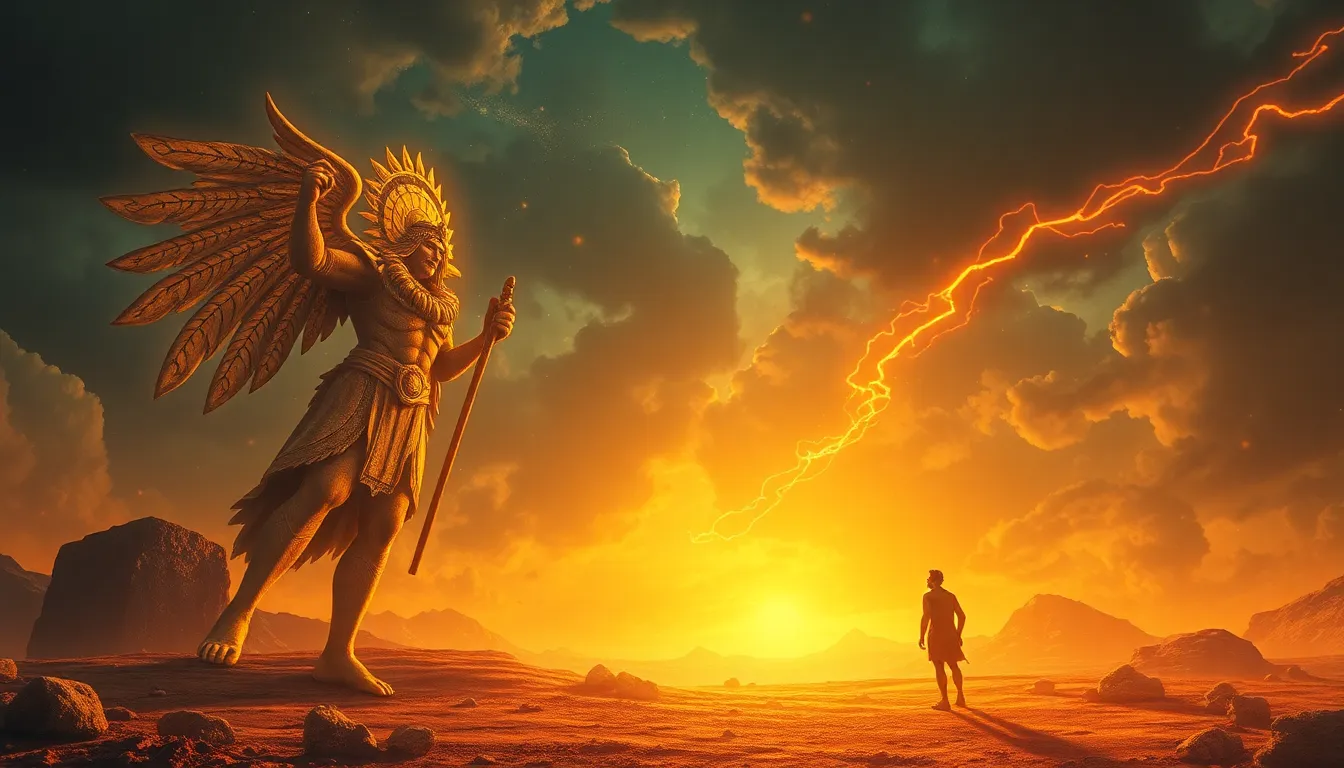The Symbolism of the Owl: Wisdom and Mystery in Mythology
I. Introduction
The owl has long captivated human imagination, serving as a powerful symbol across various cultures and epochs. Its presence in folklore, mythology, and art underscores its significant cultural importance. The dual nature of owls—representing both wisdom and mystery—makes them intriguing figures in human history.
This article aims to explore the multifaceted symbolism of owls, tracing their historical context, their role in different mythologies, and their evolution as symbols of knowledge and mystique. By examining the owl’s rich symbolism, we can gain a deeper understanding of its enduring place in human culture.
II. Historical Context of Owl Symbolism
Owls have been associated with various meanings throughout history. In ancient civilizations, they were often seen as omens or messengers. The diverse interpretations of owls provide insight into how these creatures have been perceived over time.
- Ancient Civilizations: In many cultures, owls were revered and feared. For example, in Ancient Egypt, they were associated with the goddess of wisdom, Ma’at.
- Mythological Role: Owls frequently appeared in myths, often symbolizing knowledge, intuition, and the unknown.
- Evolution of Symbolism: Over centuries, owl symbolism has evolved, reflecting changes in societal beliefs and values.
III. The Owl in Greek Mythology
In Greek mythology, the owl is closely associated with Athena, the goddess of wisdom and warfare. This association profoundly influenced the symbolism of owls in Western culture.
- Athena and Wisdom: The owl is often depicted alongside Athena, symbolizing her intelligence and insight.
- Symbol of Protection: Owls were believed to provide protection and guidance, especially at night.
- Myths and Legends: Numerous Greek myths feature owls, emphasizing their role as wise and vigilant creatures.
IV. The Owl in Native American Traditions
Native American cultures offer a diverse array of interpretations regarding owls, with meanings varying significantly between tribes.
- Harbinger of Change: Some tribes view owls as omens of change or death, often warning individuals of impending transformations.
- Spiritual Significance: In many cultures, owls are seen as messengers from the spirit world, embodying wisdom and intuition.
- Diverse Beliefs: Each tribe has unique beliefs about owls, highlighting their complex role in Native American spirituality.
V. The Owl in Eastern Mythologies
In Eastern mythologies, owls also hold significant meanings, often associated with various cultural beliefs and values.
- Indian Mythology: In Indian folklore, owls are sometimes seen as protectors of the night and symbols of knowledge.
- Chinese Perspectives: In China, owls can symbolize both luck and misfortune, reflecting their complex nature.
- Japanese Culture: In Japan, owls are associated with protection and are often viewed as omens of good fortune.
VI. The Owl as a Symbol of Knowledge
The association of owls with knowledge and wisdom is a prominent theme in philosophical discussions and modern interpretations.
- Philosophical Implications: Owls are often seen as symbols of philosophical inquiry and deep understanding.
- Modern Education: Owls frequently appear in educational contexts, representing knowledge and learning.
- Intuition and Inner Wisdom: Owls are also associated with intuition, guiding individuals to trust their inner voices.
VII. The Mystery of the Owl: Night and Darkness
The nocturnal nature of owls contributes to their symbolic significance as creatures of mystery and the unknown.
- Nocturnal Symbolism: Owls thrive in darkness, often representing the mysteries of the subconscious and the unseen.
- Cultural Associations: Many cultures associate owls with the mystical and supernatural, reinforcing their enigmatic nature.
- Creatures of the Unknown: Owls are often seen as guides through the darkness, helping individuals navigate the unknown.
VIII. The Owl in Popular Culture
Owls have made significant appearances in modern literature, film, and art, reflecting their enduring cultural symbolism.
- Literature and Film: Owls are featured in various stories, often as wise characters or symbols of knowledge.
- Contemporary Symbolism: The resurgence of owl imagery in fashion and home decor highlights their continued relevance.
- Famous Owl Characters: Characters like Hedwig from Harry Potter symbolize loyalty and wisdom, reinforcing the owl’s cultural significance.
IX. Modern Interpretations of Owl Symbolism
In contemporary society, the owl has taken on new meanings, often representing empowerment and environmental consciousness.
- Feminism and Empowerment: The owl has been adopted as a symbol of feminism, representing strength and wisdom in women’s movements.
- Environmental Symbolism: Owls are often used in conservation efforts, symbolizing the importance of protecting ecosystems.
- Spiritual Practices: Many modern spiritual practices incorporate owl symbolism, emphasizing intuition and personal growth.
X. Conclusion
The symbolism of the owl is rich and multifaceted, reflecting its significant role across various cultures and epochs. From ancient mythology to modern interpretations, owls embody wisdom, mystery, and the unknown. Their enduring legacy continues to inspire exploration and appreciation in an ever-evolving human narrative.
As we delve deeper into the world of owl symbolism, we invite readers to reflect on the significance of these fascinating creatures in their own lives and cultures.



